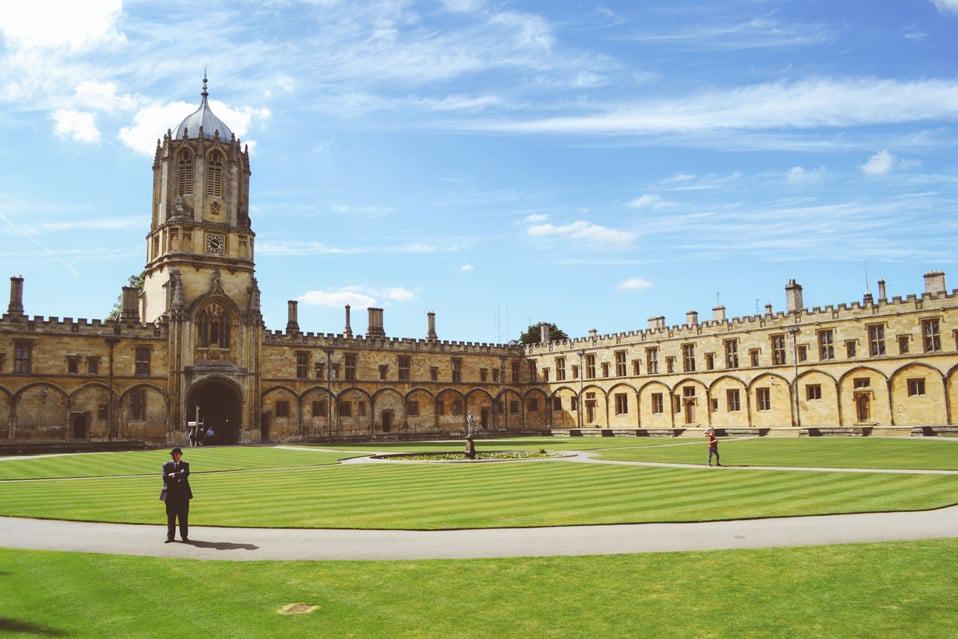Revealed: Top 10 Oldest Universities in the World
Updated: June 21, 2024

Where Are the Oldest Universities in the World Located?
Universities, or institutions of higher education, have their roots in Europe during medieval times where some of the oldest universities in the world were first founded. The term “university” comes from the word “universitas magistrorum et scholarium” which translates to “community of teachers and scholars.” In most places around the world, the term “university” is granted to institutions by a government agency, but in some places like the United States, there is no national standard for its definition.
With its beginnings, the philosophy behind a university is the notion of academic freedom. By the 18th century, universities were publishing research journals. Through the 19th century, religion briefly entered institutions and then became less focused on religion as science became more dominant. As time has progressed, universities have become more accessible to the masses, and today, online institutions like University of the People are helping to make education even more democratic and available to everyone.
But where and when were the oldest universities in the world created exactly? Here’s a brief look at some of the oldest institutions.
Source: Unsplash
Oldest Universities in the World
The oldest universities in the world are pillars of history and intellectual heritage. Each has played a role in shaping the landscape of higher education and fostering intellectual pursuits. Their enduring legacies include massive contributions to various fields of study and the development of academic freedom. These institutions have witnessed key historical milestones, influencing societies and promoting the spread of knowledge globally.
1. University of Bologna – Italy
Established in 1088, the University of Bologna holds the title of being the oldest in the world. In the past, the academic offering was only for doctoral degrees, but this has since changed as there are now a range of programs at various levels. There are about 84,200 students enrolled of which 30,000 are postgraduate students.
2. University of Oxford – United Kingdom
Created somewhere between 1096 to 1167, the University of Oxford is one of the most widely revered institutions in the world. The roster of alumni boasts prime ministers, Nobel laureates, and notable figures like Sir Stephen Hawking. The exact date of its inception is not entirely known, but some history points to the fact that teachings began as early as 1096.
3. University of Salamanca – Spain
Founded in 1134 with a royal charter in 1218, the University of Salamanca is Spain’s oldest institution. In the late 15th century, Christopher Columbus obtained royal support for his expedition that discovered North America on the university’s grounds. Today, over 30,000 students are enrolled across nine campuses.
4. University of Paris – France
More commonly known as Sorbonne, the University of Paris was founded between 1160 and 1250. Following the French Revolution, the school was on hold from 1793 to 1896. In 1970, it was divided into 13 individual institutions.
5. University of Cambridge – United Kingdom
Due to political conflicts, a group of students left the University of Oxford and created the University of Cambridge in 1209. The 21,600 students that attend the University of Cambridge still hold a rivalry with the University of Oxford that is rooted in its history.
6. University of Padua – Italy
Founded in 1222, the University of Padua is one of the surviving medieval institutions in Italy. With nine museums and one of the oldest academic botanical gardens, the school is home to 62,000 students. Additionally, the school is known for its early research in law, medicine, philosophy and astronomy.
7. University of Naples Federico II – Italy
In 1224, the emperor of the Holy Roman Empire, Federico II founded this institution. Around 100,000 students are enrolled in this school which calls Naples home. Naples also happens to be the third most populated city in the country and is one of the oldest constantly inhabited cities in the world.
8. University of Siena – Italy
Founded in 1240, the University of Siena sits in the small town of Siena in Italy. About half of the entire city’s population are students at the institution, making for a headcount of about 20,000. The school is part of the city center, deemed a UNESCO World Heritage Site which sees upwards of 163,000 tourists per year.
9. University of Coimbra – Portugal
Due to the whims of various kings, the University of Coimbra was originally established in the country’s capital but moved various times. For many decades in the 18th century, it was the only university in the country, and now, there are about 24,000 students enrolled. Like the University of Siena, the University of Coimbra is listed as a UNESCO World Heritage Site for its historical buildings.
10. Al-Azhar University – Egypt
Although Al-Azhar University did not gain the status of being a university until 1961, it was originally established in 970 AD. It was a center for Islamic teaching, but now it teaches academic subjects as well. Over 100,000 texts were ruined in the 12th century, but the institution thrives and offers programs in business, science, medicine, engineering and agriculture.
There are other universities around the world that were established early and continue to thrive. For example, the oldest university in the United States of America is Harvard, which was created in 1636. Although each university has its own philosophy of teaching, the modern-day university systems has its roots grounded in Europe from way back in the day.
Additionally, university structures continue to evolve with the times. For example, University of the People was established in 2009. Although it’s far from being one of the oldest institutions in the world, it is one of the first American, accredited universities that is entirely online and tuition-free. With degree-granting programs in Health Science, Computer Science, Business Administration and Education, over 18,500 students from over 200 countries and territories around the world have passed through the university’s virtual doors.
Source: Unsplash
Famous People That Attended the Oldest Universities in the World
Many notable alumni from the oldest universities have left a lasting impact on society. Their education at these venerable institutions has shaped their contributions to various fields, demonstrating the interconnectedness of academia and global influence:
Sir Stephen Hawking: A renowned theoretical physicist known for his work on black holes and the author of “A Brief History of Time.” His education at Oxford laid the foundation for his groundbreaking research in cosmology.
Enzo Ferrari: The founder of the Ferrari automobile company. His engineering studies at the University of Bologna helped him develop the skills necessary to revolutionize the automotive industry.
Marie Curie: The first woman to win a Nobel Prize and the only person to win Nobel Prizes in two different sciences (Physics and Chemistry). Her education at the Sorbonne was crucial to her groundbreaking research in radioactivity.
Benefits of University
Despite gaining knowledge, holding a degree offers many benefits in one’s personal and professional life. For example, with the experience of attending university, you reap these benefits:
- Knowledge that is useful to start and advance within your chosen career
- Signal to employers you can stick through to accomplish a goal
- Lifelong friends
- Life skills: time management, presentation skills, communication skills, etc.
- Become self-reliant
The Bottom Line
Regardless of where you choose to study, at an old or a new college, you will open to the door to countless possibilities and be a part of the ever-evolving nature of universities and their teachings around the world.
FAQ Section
What criteria are used to determine the age of a university?
The age of a university is determined by its founding charter or official establishment date, confirmed by historical records.
How do ancient universities compare to modern educational systems?
Ancient universities focused on limited subjects like theology and philosophy, while modern systems offer a broad range of disciplines and use advanced technology. Modern education emphasizes research and global collaboration.
How does the age of the oldest universities compare across different regions?
European universities like Bologna and Oxford are among the oldest, but institutions like Al-Azhar University in Egypt, founded in 970 AD, highlight early university establishments outside Europe.
What were the admission processes for students at these early universities?
Admission often required proficiency in Latin and passing examinations. The process was less formal than today’s standardized admissions systems.
Have the oldest universities influenced the architectural styles in their regions?
Yes, many have influenced regional styles with Gothic and Romanesque architecture, featuring vaulted ceilings, spires, and intricate stone carvings.
What insights do the oldest universities offer into the history of education?
They show the evolution from religious instruction to secular and diverse studies, preserving ancient manuscripts and teaching methods.
How did the governance structure of the oldest universities function in the past?
Governance included chancellors, rectors, and academic councils, often influenced by religious institutions.
What role did patrons and benefactors play in the founding of these universities?
Monarchs, religious leaders, and wealthy individuals provided financial support, land, and resources necessary for establishing these institutions.
What impact have the oldest universities had on their respective societies?
They have advanced knowledge, fostered cultural development, and produced leaders in various fields, contributing to social mobility and economic development.



